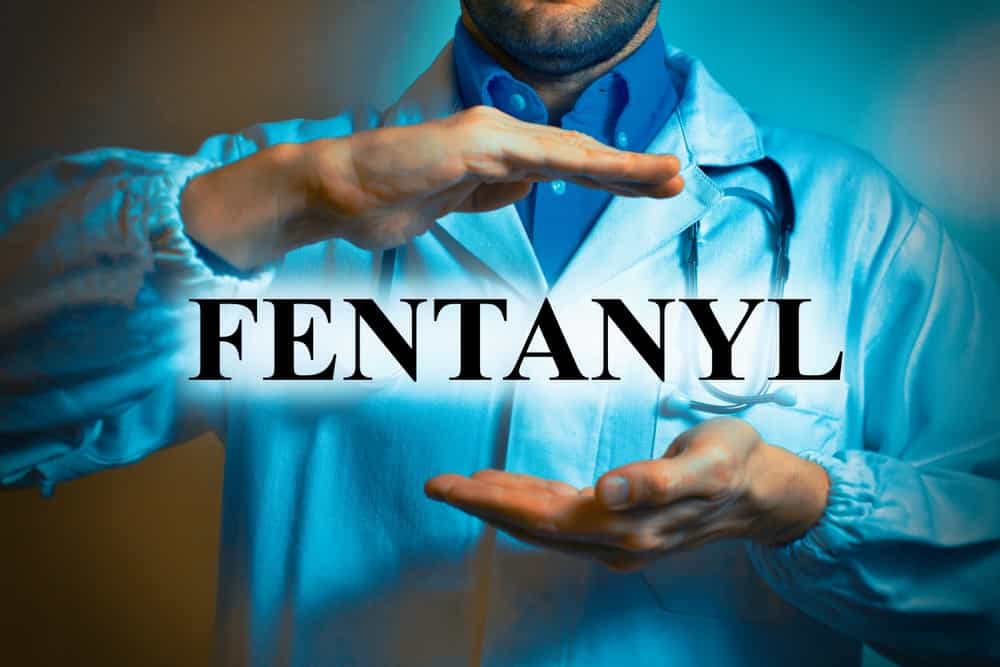Early signs of recovery include improved mood, increased energy, and a stronger sense of renewal in your daily life. You may also notice better relationships, enhanced self-awareness, and a newfound motivation to pursue personal and professional goals. As your body detoxifies, physical symptoms such as cravings and withdrawal effects may start to diminish. Additionally, being able to manage stress in healthier ways and feeling hopeful about the future are strong indicators of progress.
Fentanyl Addiction Treatment


Welcome to Rock View Recovery
At Rock View Recovery, we offer compassionate, evidence-based treatment for Fentanyl addiction in the Phoenix metro area. Our mission is to help people reclaim their lives, build resilience, and achieve lasting wellness. We take a holistic approach that nurtures the mind, body, and spirit, blending cutting-edge therapies like brain center technology with proven traditional methods.
Recovery is personal, and every journey is different. That’s why we create customized treatment plans tailored to each individual’s needs, ensuring the right care and support at every stage. If you or a loved one is struggling with addiction, we’re here to help. Our expert team provides counseling, structured programs, and a strong recovery community to make lasting sobriety possible.
With medical support, therapy, and lifestyle changes, we help address both addiction and its root causes. Our goal is long-term success, equipping clients with the tools they need to build a fulfilling, substance-free life.
Our Services Include:
Residential Level of Care
Our residential level of care is designed for individuals who require an immersive and structured environment to focus entirely on their recovery. In this program, clients receive 24/7 care and support from a team of professionals, including medical doctors, nurse practitioners, licensed therapists, and behavioral health technicians. The goal is to create a stable and healing environment where individuals can begin their journey to sobriety with personalized, evidence-based treatment plans.

Key features of our residential program include:
- Comprehensive Medical and Clinical Care: We conduct thorough assessments to identify any co-occurring mental health conditions that may be contributing to addiction. Clients receive psychiatric evaluations, medication management, and individualized therapy sessions to address underlying issues.
- Therapeutic Modalities: We utilize a combination of cognitive behavioral therapy (CBT), dialectical behavior therapy (DBT), and trauma-informed care to help clients understand and overcome their addiction.
- Structured Daily Routine: Clients participate in group therapy, one-on-one counseling, educational workshops, and wellness activities to foster holistic healing and self-discovery.
- Holistic Approaches: In addition to traditional treatment, we offer yoga, meditation, mindfulness practices, and exercise programs to support overall well-being and reduce stress.
- Nutritional Guidance: Proper nutrition plays a key role in recovery. Our team provides dietary education and meal planning support to ensure clients regain physical strength and balance.
- Family Involvement: Our family programming helps loved ones understand addiction and learn how to support the recovery process while fostering healthier relationships.
Transitional Living
After completing the residential program, clients transition into our transitional living program, also known as our Recovery Community. This phase is designed to bridge the gap between intensive treatment and independent living, allowing individuals to rebuild their lives with continued support and accountability.

Key benefits of our transitional living program:
- Safe and Structured Living Environment: Clients live in a supportive, substance-free residence where they are encouraged to practice the skills they learned in residential treatment.
- Accountability and Peer Support: Daily check-ins, mentorship, and house meetings create a community that reinforces positive behaviors.
- Life Skills Development: We offer workshops on financial literacy, job readiness, and time management to prepare clients for independent living.
- Vocational and Educational Opportunities: Clients have access to career training, educational advancement programs, and assistance with job placement to build a stable future.
- Continued Therapy and Counseling: Regular counseling and therapy sessions ensure that clients stay on track and continue working through any personal challenges that arise during this transitional phase.
Aftercare Services
Long-term recovery requires ongoing support, and our aftercare services ensure that clients have the resources they need to maintain their sobriety. This program provides structured follow-ups, continued counseling, and access to a variety of community-based solutions to help individuals sustain their progress.

Key aspects of our aftercare services:
- Individualized Follow-Up Plans: We create personalized aftercare plans tailored to each client’s needs, ensuring they have the tools to navigate life after formal treatment.
- Alumni Support Groups: Clients can stay connected with their peers through regular meetings, mentorship opportunities, and recovery-focused events.
- Relapse Prevention Strategies: Clients receive ongoing education and coping strategies to prevent relapse and reinforce healthy habits.
- Ongoing Access to Therapy: Continued access to therapy sessions and mental health resources helps address any new challenges that arise post-treatment.
- Community Engagement: We connect clients with local resources, including support groups and volunteer opportunities, to keep them engaged and motivated in their recovery journey.
Alumni Program
Our alumni program is an essential part of maintaining sobriety and the long-term effects of treatment. By fostering a strong recovery community, we help former clients stay connected and continue receiving the encouragement and motivation they need to thrive.

Key features of our alumni program:
- Peer Mentorship: Alumni can mentor and support individuals who are earlier in their recovery journey.
- Regular Check-Ins: Ongoing communication and check-ins help alumni stay accountable and engaged in their sobriety.
- Recovery Events and Social Gatherings: Our alumni community organizes events, outings, and meetings that help maintain a sense of connection and camaraderie.
- Continued Growth and Learning: We provide access to educational workshops, guest speakers, and wellness activities to encourage lifelong growth and self-improvement.
Our comprehensive range of services ensures that individuals receive the care they need at every stage of their rehabilitation journey, from intensive treatment to independent living. No matter where you are on your path, Rock View Recovery is here to provide the guidance, therapy, and support needed for lasting transformation.

Signs You or a Loved One May Need Fentanyl Addiction Treatment
Recognizing the signs of addiction can be the first step toward seeking solutions. If you or someone you love experiences any of the following, it may be time to reach out for professional treatment:
- Struggling with intense cravings or urges to use Fentanyl
- Experiencing withdrawal symptoms or using more than intended
- Neglecting responsibilities due to addiction
- Feeling overwhelmed or unable to control drug use
- Experiencing emotional or mental health issues alongside addiction
- Experiencing relationship problems caused by drug use
Frequently Asked Questions
Q:What are the early signs that I may be recovering from Fentanyl addiction?
Q:How do I know if my cravings for Fentanyl are under control?
Cravings become less intense and less frequent as you progress through therapy and develop healthier coping mechanisms. You may find that urges are easier to resist and that you can redirect your focus to positive activities such as exercise, hobbies, or community engagement. Using techniques like mindfulness, meditation, and cognitive behavioral strategies can also help in recognizing and managing triggers before they lead to relapse.
Q:How can I tell if my mental health is improving while recovering from addiction?
Signs of mental health improvement include better emotional regulation, reduced anxiety, and a greater sense of stability. You may experience fewer mood swings, increased patience in handling challenges, and a deeper appreciation for life. A key indicator is the ability to process emotions constructively, without resorting to substance use. Improved sleep patterns, the ability to maintain focus, and stronger communication skills also suggest positive mental health progress.
Q:What are the signs that addiction may still be affecting my life?
If you continue to struggle with strong urges, social isolation, or difficulty maintaining responsibilities, additional service and support may be needed. Signs such as feeling disconnected, frequently thinking about past substance use, or experiencing mood swings and irritability could indicate that further therapy or peer support might be beneficial. Relapse warning signs also include justifying “just one more time” thinking and avoiding accountability from your support system.
Q:What are the emotional signs that Fentanyl addiction is taking a toll on me?
Emotional distress can manifest in several ways, including feelings of hopelessness, shame, guilt, or frustration. A sense of emotional numbness, difficulty finding joy in everyday activities, or persistent negative thoughts can also indicate that addiction is still impacting your well-being. If you experience heightened stress levels or struggle to connect with loved ones, seeking additional professional counseling and peer support may help address these challenges.
Q:How can I monitor progress in overcoming addiction and mental health struggles?
Tracking improvements in your relationships, work performance, and self-confidence can help measure progress. Regular counseling and participation in recovery programs provide structure and accountability. Journaling about emotions and triggers, setting small, measurable goals, and consistently practicing stress management techniques such as mindfulness or exercise can also be helpful. Surrounding yourself with a strong support network and engaging in sober activities will reinforce positive changes.

Ready to Start Your Recovery Journey?
Take the first step toward restoration and healing. Contact Rock View Recovery today to learn more about our treatment services and recovery solutions.